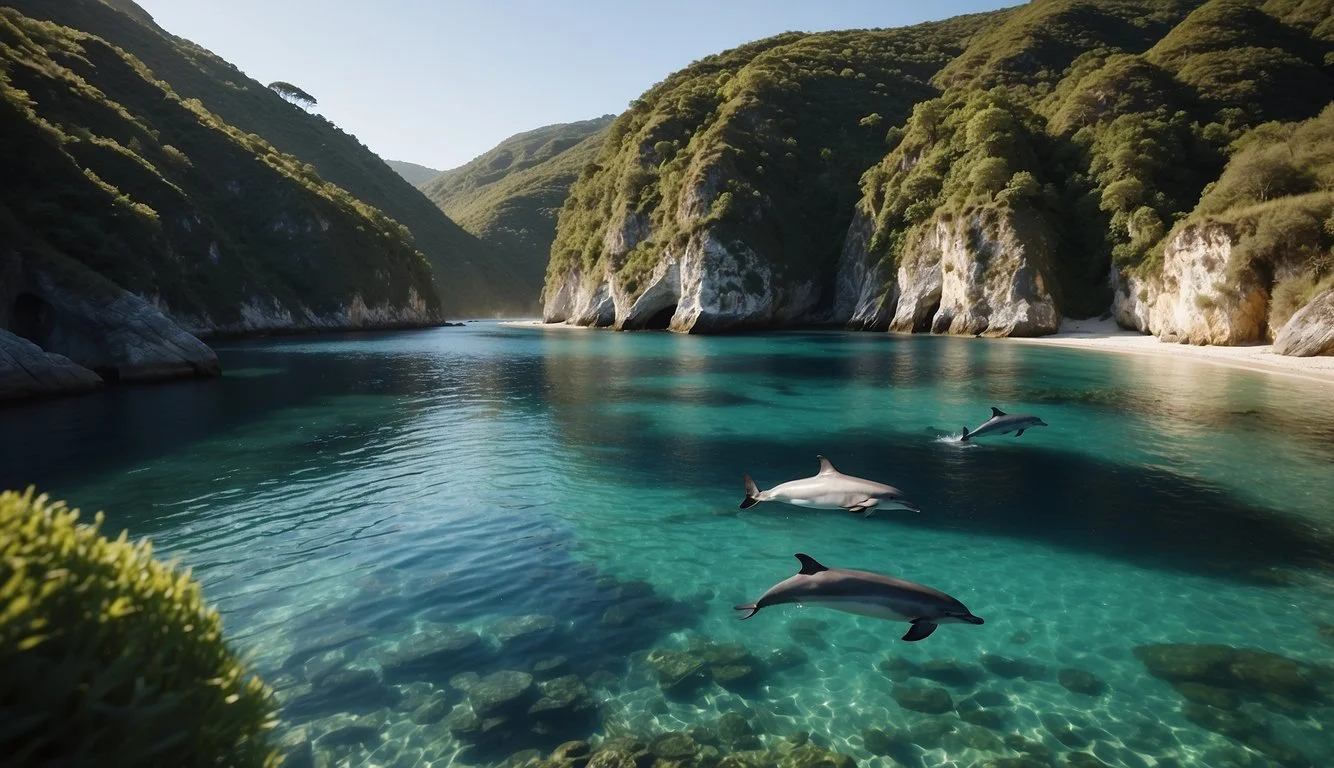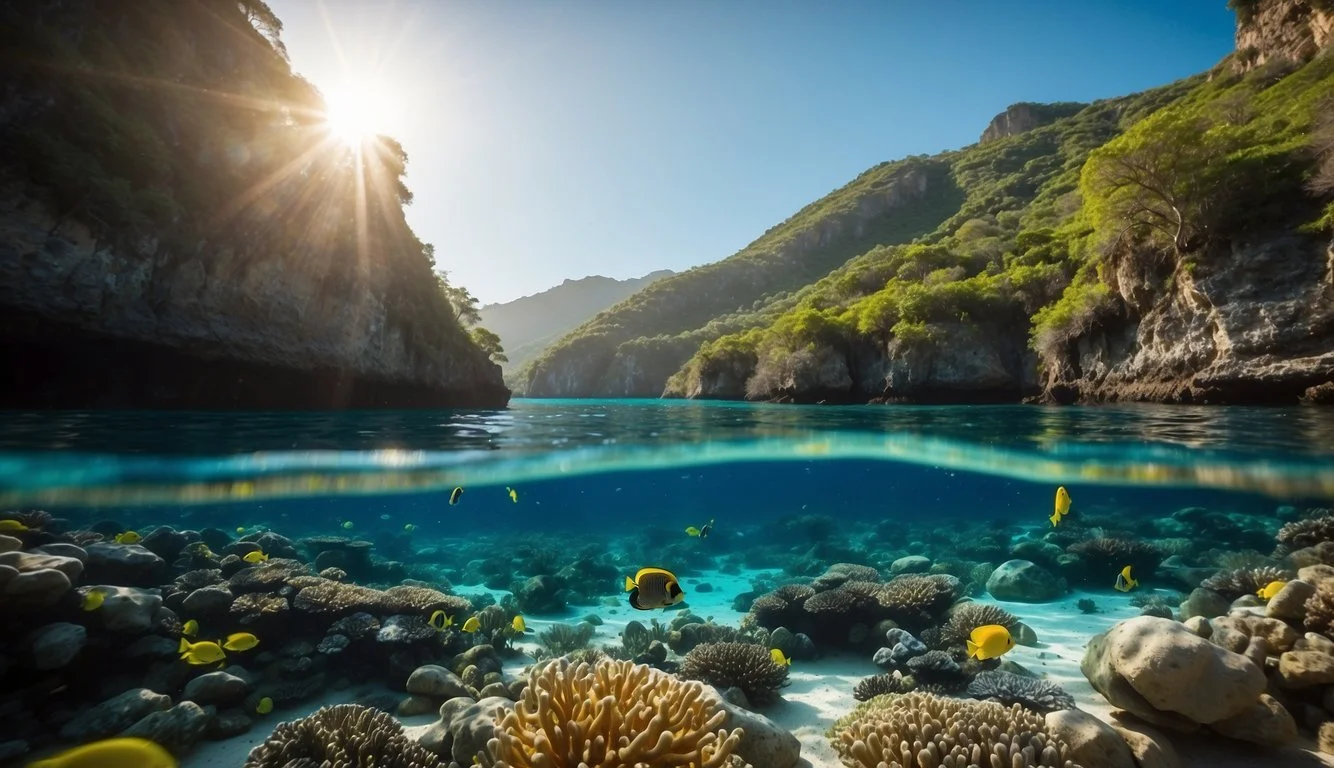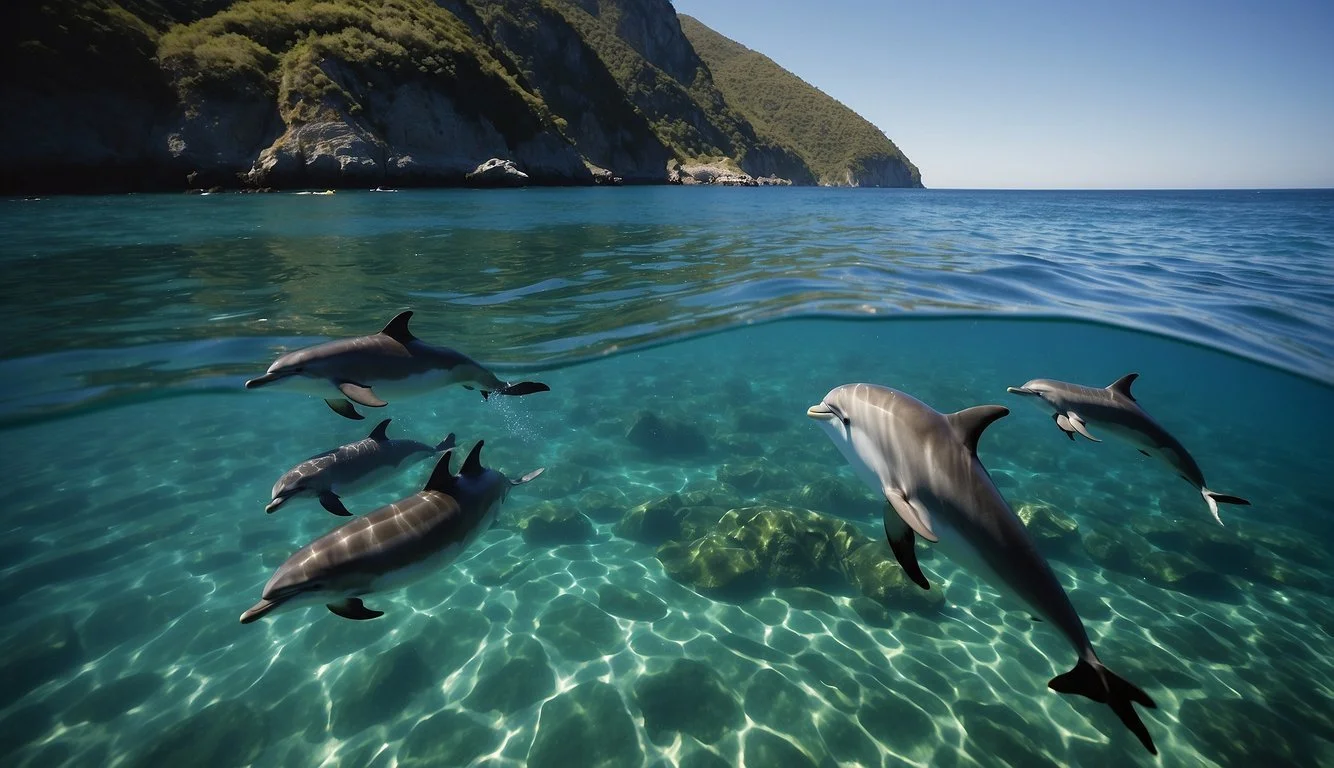Documentary Review: The Cove (2009)
An Exposé on Dolphin Hunting
Louie Psihoyos's 2009 documentary, "The Cove," takes viewers on an eye-opening journey into the world of dolphin hunting in Taiji, Japan. This film does more than just present facts; it challenges the audience to confront the harsh realities of animal cruelty. Through the lens of activist and former dolphin trainer Richard O'Barry, the documentary reveals the dark truth behind the smile of captive dolphins.
As the camera navigates the hidden coves of Taiji, viewers are exposed to the brutal annual dolphin hunts that supply marine parks worldwide. The film's compelling narrative and stirring visuals leave a lasting impression, making it a crucial piece of advocacy for animal rights and conservation.
With its mix of thrilling undercover footage and heartfelt testimonials, "The Cove" captures the complex interplay between tradition, economy, and activism. This documentary isn't just a call to action; it's a compelling story that sheds light on an often-overlooked practice, urging viewers to reconsider the ethical implications of wildlife captivity.
Background of 'The Cove'
'The Cove' is a groundbreaking documentary that exposes the hidden practices in the Japanese coastal town of Taiji. The film combines investigative journalism with hidden camera techniques to bring to light the controversial dolphin hunting industry.
The Making of 'The Cove'
'The Cove' was directed by Louie Psihoyos, who orchestrated a covert operation to reveal the annual dolphin hunts in Taiji. With a team of dedicated activists, filmmakers, and divers, Psihoyos used state-of-the-art technology to capture footage that was both daring and highly informational.
Hidden cameras were disguised as rocks, and underwater microphones were employed to document the harrowing scenes of dolphins being herded and slaughtered. The meticulous planning and execution of these operations underscore the film's commitment to truth and justice.
Director Louie Psihoyos
Louie Psihoyos, a former National Geographic photographer, brought his expertise and passion for marine life to the making of 'The Cove'. His background in photojournalism and environmental activism provided a strong foundation for this project.
Psihoyos’s dedication to unveiling environmental crimes is evident in his approach to 'The Cove'. He recruited a team that included dolphin trainer-turned-activist Richard O'Barry, who provided insider insights into the plight of dolphins in captivity and the hunting practices of Taiji. This collaboration was pivotal in producing a film that is both impactful and informative.
Synopsis of 'The Cove'
"The Cove" (2009) is a documentary focused on the brutal dolphin hunts in Taiji, Japan, and the efforts of activists to expose this hidden cruelty. It brings to light both the environmental impact and the struggle for animal rights through gripping footage and powerful storytelling.
Plot Summary
The documentary begins in Taiji, a coastal town in Japan known for its annual dolphin hunt. Hidden cameras and daring night operations reveal the extent of the slaughter, where thousands of dolphins are herded into a cove. Some dolphins are captured for marine parks, but most are killed for their meat.
The film uses high-tech equipment and an undercover crew to document the process, showing the stark transformation of the cove's waters to red. Alongside the primary narrative, the film explores the health risks associated with consuming dolphin meat due to high mercury levels.
"The Cove" juxtaposes scenes of natural beauty and the dolphins' grace with harrowing images of the slaughter, offering a stark contrast that compels the viewer to confront the brutal reality.
Key Characters and Activists
Ric O'Barry – Former dolphin trainer who worked on the popular TV show "Flipper." He leads the charge against dolphin captivity after realizing the harmful impacts on these intelligent creatures. His transformation from trainer to activist serves as the film's emotional core.
Louie Psihoyos – The director of "The Cove," Psihoyos employs a team of activists, filmmakers, and divers to expose the dolphin hunts. His determination to uncover the truth drives the narrative forward.
Mandy-Rae Cruikshank and Kirk Krack – Expert free divers who assist in placing covert cameras around the cove. Their involvement is crucial for capturing the hidden footage essential to the documentary’s impact.
These individuals, along with numerous anonymous contributors, play pivotal roles in documenting and sharing the truths hidden behind the guise of tradition and economic necessity in Taiji, bringing to light a practice long kept out of the public eye.
Critical Analysis
In examining the critical elements of The Cove, it is important to consider the film's powerful cinematography and effective narrative structure. Each of these aspects significantly contributes to the documentary's impact.
Cinematography and Techniques
The Cove employs advanced cinematography to capture both the beauty and horror of its subject. Underwater cameras are used to record the serene marine environment, creating a stark contrast to the violence of the dolphin hunts.
The film's use of hidden cameras offers an unfiltered look into the secretive practices in Taiji, Japan. This approach not only raises ethical questions but also heightens the film's emotional intensity by immersing viewers in the clandestine operations.
Technological innovation plays a key role, with thermal imaging and high-definition footage providing clarity and enhancing the documentary's visual appeal. These techniques enable the filmmakers to present a visceral, unadulterated perspective, rendering the documentary both captivating and distressing.
Narrative and Pacing
The documentary’s narrative is expertly crafted to maintain viewer engagement. It focuses on Ric O'Barry, the former dolphin trainer turned activist, whose personal journey offers a compelling emotional anchor. His transformation from trainer to advocate serves as the central thread, drawing viewers into the broader issue of dolphin hunting.
The pacing is deliberate, balancing moments of tension with quiet reflection. The film builds suspense through moments of discovery and confrontation, using O'Barry's experiences to guide the audience through a complex narrative web. This methodical pacing ensures that viewers remain invested without becoming overwhelmed by the subject matter.
The documentary’s structure is methodical, carefully unraveling the layers of its story to build a coherent and impactful argument. Each segment reveals critical information, progressing the narrative while maintaining a focused and clear trajectory.
Themes and Messages
The Cove (2009) artfully presents its core themes of environmental conservation, ethical concerns surrounding dolphin hunting, and the impact of activism through documentary filmmaking. These themes are critical for understanding the broader implications of the film.
Environmental Conservation
The Cove highlights the urgent need for environmental conservation, spotlighting the specific plight of dolphins. It sheds light on the ecological significance of dolphins in marine ecosystems. The film emphasizes the detrimental effects of dolphin hunting on biodiversity and the health of the oceans. The destruction of marine life in Taiji, Japan, serves as a microcosm for broader issues of environmental degradation. This documentary urges viewers to consider the long-term impacts that human activities have on the planet's health.
Ethical Concerns of Dolphin Hunting
Ethical concerns are central to The Cove, which critiques the inhumane treatment of dolphins. The documentary provides a powerful narrative against dolphin hunting practices in Japan, showing the brutal reality of these hunts. Richard O'Barry, a former dolphin trainer turned activist, exemplifies the moral dilemmas and transformations that can arise from witnessing such cruelty. The film draws attention to the suffering of highly intelligent creatures, encouraging viewers to reevaluate their perspective on animal rights and captivity.
Impact of Activism and Filmmaking
The Cove stands as a testament to the power of activism and the role of filmmaking in effecting change. Director Louie Psihoyos and his team of activists employ espionage techniques to document and expose the hidden atrocities in Taiji. The film's success in winning the 2009 Oscar for Best Documentary underscores its global impact. It not only raises awareness but also mobilizes viewers to take action, demonstrating how documentary films can serve as catalysts for social and environmental movements.
Public and Critical Reception
The Cove (2009) has been met with substantial acclaim from both critics and the public. The film has also sparked discussions within various environmental groups and faced controversy due to its provocative content.
Awards and Accolades
The Cove received numerous awards, underscoring its impact and excellence in documentary filmmaking. The film won the Academy Award for Best Documentary Feature in 2010, a significant recognition. It also secured the Audience Award at the Sundance Film Festival in 2009. Critics praised its compelling narrative and emotional depth, cementing its place as a notable work in the genre.
Reception by Environmental Groups
Environmental and animal rights organizations widely embraced The Cove. Groups such as The Dolphin Project and Sea Shepherd Conservation Society lauded the film for its direct approach to highlighting dolphin capture and slaughter. The documentary fueled greater awareness and advocacy, leading to increased pressure on Japanese authorities to address the controversial dolphin hunts in Taiji. This film served as an effective catalyst for change and continued activism.
Controversy and Opposition
The Cove also encountered opposition, particularly from Japanese officials and local fishermen in Taiji. They criticized the film for presenting a biased view and for intruding on cultural practices. Furthermore, questions about the ethical implications of the filmmakers' covert methods in obtaining footage arose. This discourse highlighted the broader debate on the balance between advocacy and respect for cultural traditions, making The Cove a subject of continued contention.
Impact and Legacy
"The Cove" has had significant effects on public awareness and conservation policies related to dolphin hunting and marine life preservation.
Changes in Public Awareness
"The Cove" brought international attention to the brutal dolphin hunts in Taiji, Japan. Before its release, the public knew little about this practice. The documentary's powerful narrative and graphic footage sparked global outrage. Ric O'Barry, the former dolphin trainer-turned-activist, played a crucial role in highlighting the dark realities behind dolphin captivity and slaughter.
Following the film, numerous protests, campaigns, and petitions surfaced. Social media amplified the message, reaching millions. As a result, there was a marked increase in public support for marine conservation efforts. Many people became more conscious of the ethical issues surrounding marine parks and dolphinariums.
Influence on Conservation Policies
The documentary also influenced government actions and non-profit organizations. After its release, there was increased scrutiny on Japan's dolphin-hunting practices. Some policies were enacted to regulate and, in some cases, reduce these activities. International bodies like the International Whaling Commission faced pressure to address and condemn these hunts.
Environmental groups used the documentary as a tool for advocacy. For example, organizations such as Sea Shepherd intensified their efforts to disrupt the hunts. "The Cove" also encouraged stricter policies regarding the treatment and captivity of marine animals worldwide, contributing to a broader legislative push for marine life protection.
Comparative Analysis
The Cove (2009) stands out in the realm of documentary films by integrating a unique cinematic approach and aligning itself with other influential documentaries that expose ethical and environmental issues. Each subsection explores these elements in detail.
Similar Documentary Works
Documentaries like Blackfish and Earthlings share thematic similarities with The Cove, focusing on the exploitation and suffering of animals. Blackfish examines the captivity of orcas and the ethical questions surrounding their confinement. Earthlings expands the scope to various forms of animal exploitation across industries.
These films, like The Cove, employ a mix of emotional narrations and impactful visuals to provoke audience empathy and outrage. The use of undercover footage is another common strategy, creating a sense of urgency and realism in the storytelling.
The Cove's Unique Approach
The Cove sets itself apart through its blend of investigative journalism and adventurous narrative. Directed by Louie Psihoyos, the film follows Ric O’Barry and a team of activists using covert operations to document the dolphin hunt in Taiji, Japan.
Cutting-edge technology, such as hidden cameras and microphones, enhances the suspense and drama, giving the documentary a thriller-like atmosphere. This innovative use of technology and high-stakes narrative distinguishes The Cove from other films in the genre, offering an immersive and compelling viewing experience that draws the audience directly into the heart of the issue.
Conclusion
"The Cove" presents a disturbing yet eye-opening portrayal of the brutal dolphin hunts in Taiji, Japan. It not only documents the efforts and risks taken by activists but also raises critical questions about animal rights and marine conservation.
Final Thoughts on 'The Cove'
The Cove impressively marries investigative journalism with emotional narratives to highlight a hidden and ongoing tragedy. The documentary’s strength lies in its ability to stir the audience's emotions while providing solid evidence of the cruel practices involved in dolphin hunting.
By leveraging dramatic footage and firsthand accounts, "The Cove" delivers a compelling call to action. The film achieves a rare balance between activism and storytelling, making the issue of dolphin slaughter both relatable and urgent.
The Future of Dolphin Protection Efforts
Post-release, "The Cove" has inspired many to take action against dolphin hunting. It spurred international outrage and prompted discussions on the need for stronger marine wildlife protections.
Efforts are now more focused, with increased advocacy, legislative attempts, and public education. While it remains a challenging battle, there is hope that policies will evolve to enforce stricter regulations, and individuals will continue to pressure governments for change.
Additionally, the film has laid groundwork for future documentaries addressing similar issues, continually pushing the agenda for ethical treatment of marine animals.




